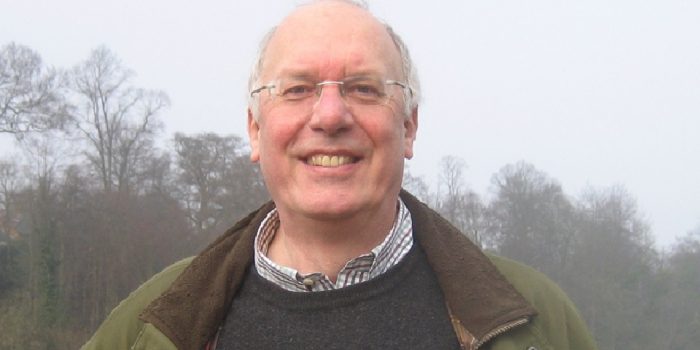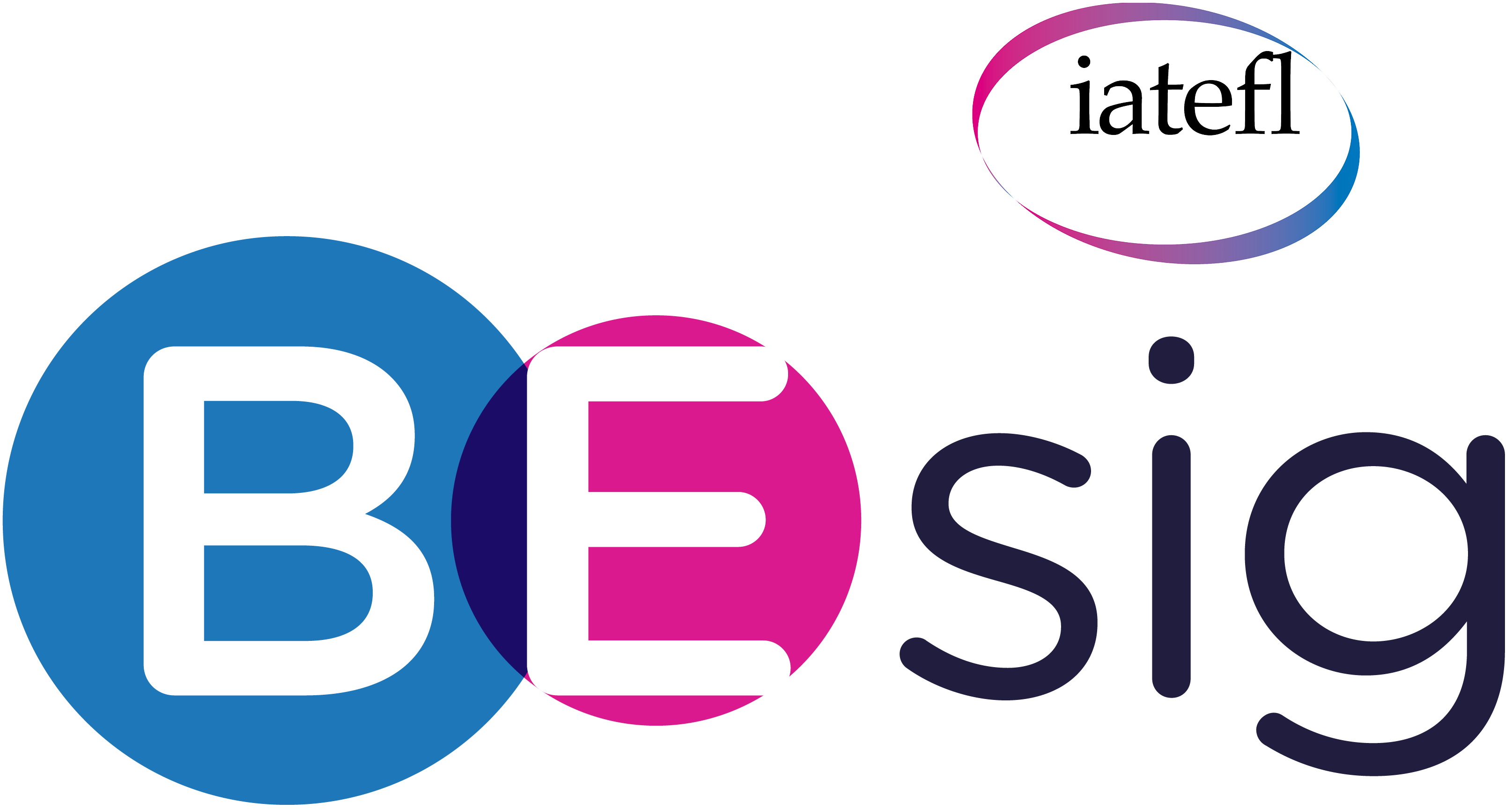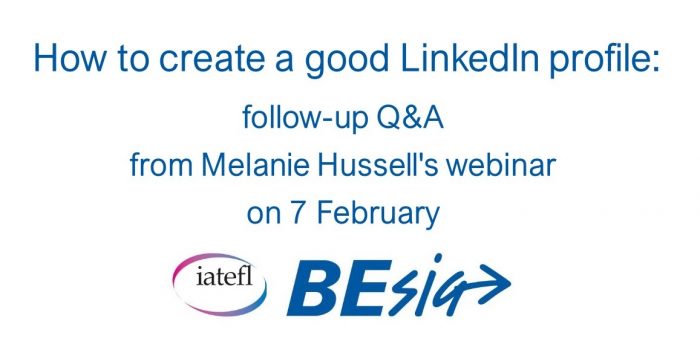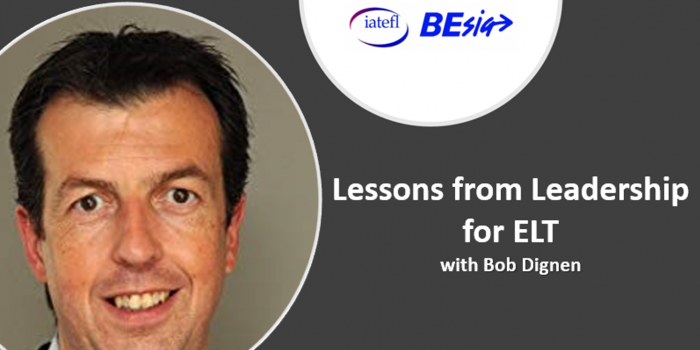
Ian Badger
Through the last six interviews, we have had the chance to meet a very diverse and intriguing array of BESIG members, and this week adds another gem to the treasure trove. Ian Badger has been a loyal BESIG member, conference attendee and presenter for many years. Many of us know him best from his work on authentic listening, so read on to find out more about getting into materials writing, teaching ‘native’ speakers of English and Ian’s hopes and dreams for the upcoming annual BESIG conference in Berlin!
Ian Badger has been delivering business English and multicultural communication training for over thirty years predominantly in the forest products/paper, IT and engineering industries. He has authored a range of business English with titles like ‘English for Business Life’ and the Macmillan Business English Programme’ as well as materials for publishers including Cengage/NGL, Collins, ELI, Ernst Klett Sprachen, Macmillan, Marshall Cavendish and Pearson.
Why is authentic listening so important?
I see the ability to understand speakers from all over the world, many of whom do not speak with the ‘standard’ pronunciation, grammar and clarity taught and tested in school environments, as a core business communication skill. Throughout my career, my client companies have operated on all continents and their personnel have struggled in their ability to understand different English accents and work with different cultural norms. I often hear from learners that they understand me well (with my ‘standard’ southern English accent), but that they have great difficulty in understanding their Indian IT Helpdesk, their Chinese auditor, a Scottish supplier or their Spanish sales office. I strongly believe that learning to understand English however it is spoken should be part of the curriculum for anyone studying English for the workplace.
Can you tell us a bit about how your authentic Business Listening book was put together?
I was approached by Catherine Whitaker from Collins as at the time that they were about to re-launch themselves into ELT publishing. Catherine had previously worked for Marshall Cavendish, my former publisher, on a textbook series which included authentic recordings alongside scripted listening material. Like me, Catherine was keen to produce material based on and triggered by 100% authentic recordings and she asked me to come up with a plan for a book. I suggested the types of recordings which I wanted and the excellent Collins team made the recordings and transcribed them. I then selected extracts from the recordings to include, depending on their quality and interest, and wrote the support materials – materials designed to help learners to become sensitive to a wide range accents and to provide a springboard for activities, discussion and analysis.
You run courses with ‘native’ and ‘non-native’ participants. What are the benefits of having such a mixture?
The courses which I run through BMES (Business and Medical English Services) for ‘native’ and ‘non-native’ participants are predominantly intensive two-day courses which are held in Germany. The focus of this training is on developing multicultural communication skills with English as the lingua franca. These courses are designed predominantly for those working in an international Supply Chain environment – in Logistics, Planning, Procurement and Customer service. The training is open to all company personnel and participants are from a wide range of countries including Germany, Russia, Poland, Italy, UK and USA. All benefit from improving their cultural insights and from developing their understanding of what clear communication involves. ‘Native’ and ‘near-native’ speakers in particular comment that the training helps them to become aware of the importance of modifying their language; they are often surprised by the fact that language they use regularly is not understood by their counterparts.
You do a lot of work in Finland. Can you tell us a bit about what it’s like teaching there?
It is fun and very rewarding. I lived in Finland for the first two years of my teaching career and have returned every year to work since then. Finns value education and are prepared to invest in high quality communication training that brings benefit to their business. The general level of English in Finland is high and as the lingua franca of many major companies is English, many Finns are focused on reaching high levels of proficiency. In my experience of in-company training in Finland, the need for ‘general’ business English is low, but the need for focused training is high. Learners must have the multicultural communication skills and be able to use the specific language needed to work in particular jobs in order to succeed in the workplace. There is a cultural stereotype of the ‘silent’ Finn, but I see very few examples of this stereotype in my regular contacts with Finnish friends and work colleagues.
You’ve had a long business relationship with one particular company, could you give us some tips on how to maintain a successful, long-lasting relationship as a service provider?
I have been involved in the paper/forest-products industry for most of my working life and have acquired an extensive knowledge of processes, products and industry culture. As mentioned earlier, I have visited mills and offices in many countries to make recordings to use in our training and this has given me a unique advantage.
So, my advice is:
- get to know the companies which you work for; familiarise yourself with their products and company culture.
- deliver the training which is needed – BMES only delivers tailored training solutions.
- be flexible and open to new opportunities.
- build relationships with the personnel who understand training needs and will order training – this will often mean unit directors, department heads and not necessarily HR management.
- learn to speak the ‘native’ language of the company. Knowing Finnish is a definite advantage when working for a Finnish company.
How did you get into writing business English textbooks?
Back in the early 90s, I had recently finished my Masters in TEFL at Reading University specialising in ESP and business English. Macmillan were looking for two writers for a major business English series and my name was put forward. I had already founded BMES and was running intensive business English communication courses mainly in Finland, Sweden and the UK. I was working closely with international companies and this gave me access to factories and offices to make video and audio recordings of the transactions which actually took place in those environments; I guess that this background, combined with my academic background appealed to the publisher. I would like to thank Susan Holden and her team at Macmillan for giving me this ‘first chance’.
Are you coming to BESIG in Berlin in October? What are you looking forward to most about the conference?
‘Most’ is difficult. I am looking forward to catching up with old friends and getting new ideas by attending a variety of talks and workshops. I will be giving a talk called ‘The way we were, the way we are’ where I will be reflecting on how business English communication has changed and not changed over the years. I am certainly looking forward to preparing and delivering this talk and to hearing the views of those who attend the presentation. Perhaps I am most looking forward to my joint discussion/presentation with Ian McMaster, the editor of Business Spotlight, which will be a follow-up to our individual presentations at the conference.
If you would like to be interviewed and featured on the BESIG blog, send an email to Mandy at [email protected].
Questions and editing by Mandy Welfare
13th July 2019
MEET A MEMBER is available to IATEFL BESIG members and non-members alike but only features our current members. Another reason to join us and “BE with BESIG.”



